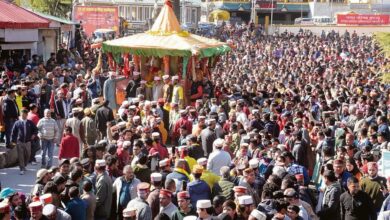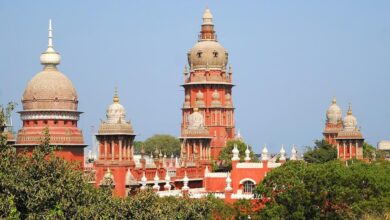Views | Is Caste Politics in Peril?
Regarding Indian voters, there is an ancient proverb that states, “In India, voters don’t cast their vote, they vote their caste.”
Since the country’s independence, politicians and political parties have cleverly used caste for their own political gain. Recall that the Bihar government, under the direction of Chief Minister Nitish Kumar, published a survey based on caste in October of last year. According to the census, a staggering 63% of people in Bihar are classified as belonging to the Other Backward Classes (OBCs) or Extremely Backward Classes (EBCs).

It is important to note that in the past, the British colonial authority instituted the caste census in 1881. Caste-based population counts were conducted every decade until 1931, at which point they were stopped.
Because a caste census would reinforce caste divides and the caste system itself, independent India never reinstated it as a component of the regular census. In actuality, the Mandal Commission only utilized data from the 1931 caste census when it suggested reservations for socially and economically disadvantaged groups in Central government employment in 1980.
The caste census is a dead topic that Nitish Kumar, a product of Mandal politics, has dug out of history and given a new lease of life in order to appease the caste politics agenda. Not to mention that the caste census process and its consequences were deemed “divisive” even by the British authorities. Following Nitish Kumar’s lead, the Congress has pledged to conduct a caste-based census in the Hindi-majority states of Madhya Pradesh, Chhattisgarh, and Rajasthan in November and December of 2023. With the catchphrase “Jitni abadi, utna haq” (Rights proportional to population), senior Congress leader Rahul Gandhi made a compelling case for a caste census in the heat and dust of the election season.
Subsequently, several columnists jumped on the caste cauldron bandwagon, penning column after column forecasting that caste dynamics would influence election results and that voters’ decisions in the heartland states would be influenced by caste calculation. Indeed, the same type of agenda-driven columnists actually jumped the gun when the Nitish Kumar government in Bihar announced the caste census, claiming that it was a “landmark move” that “threatened” Prime Minister Narendra Modi’s hold on “power” and that the “caste census has the potential to upend India’s politics.”
However, when the BJP won the Hindi heartland states of Madhya Pradesh, Rajasthan, and Chhattisgarh, their wild forecasts came to nothing. This is not to deny that caste politics have long been associated with the Hindi heartland states. However, in a radical departure from traditional politics, the voters in the heartland states were unmoved by the caste census issue.
The Congress attempted to divide Hindu support in the Hindi heartland states by using the caste census as a major electoral issue. Simultaneously, the BJP gently refuted the Congress’s caste census strategy by emphasizing the growth of the whole population rather than just one segment. And the BJP benefited greatly from it, since the saffron party received a sizable consolidation of Hindu voters.
Based on the last state elections, it may be inferred that Indian voters are becoming less influenced by caste, as seen by their embrace of Prime Minister Narendra Modi’s core anchor for governance, “Sabka Saath, Sabka Vikas” (Partnership for everyone’s development). By highlighting his belief that there are just four castes: women, youth, farmers, and the impoverished, Prime Minister Modi has his finger on the pulse of the country.
Nonetheless, the Congress continues to insist that the results of the Assembly elections do not represent a “repudiation of the caste-census issue,” despite the overwhelming defeat it suffered in the states that make up the Hindi heartland. This writer was informed by congressional sources that one of the main electoral platform of the Grand Old Party and the INDI coalition in the general elections of 2024 would be the “promise of a national caste census.” In an attempt to undermine Prime Minister Modi’s inclusive development vision, the Congress-led INDI coalition wants to turn the 2024 elections into a race between agada (forward) and pichada (backward).
Voters in 2024 will have to decide between the inclusive program of Prime Minister Narendra Modi and the Congress’s plan to split Hindu society along caste lines.







